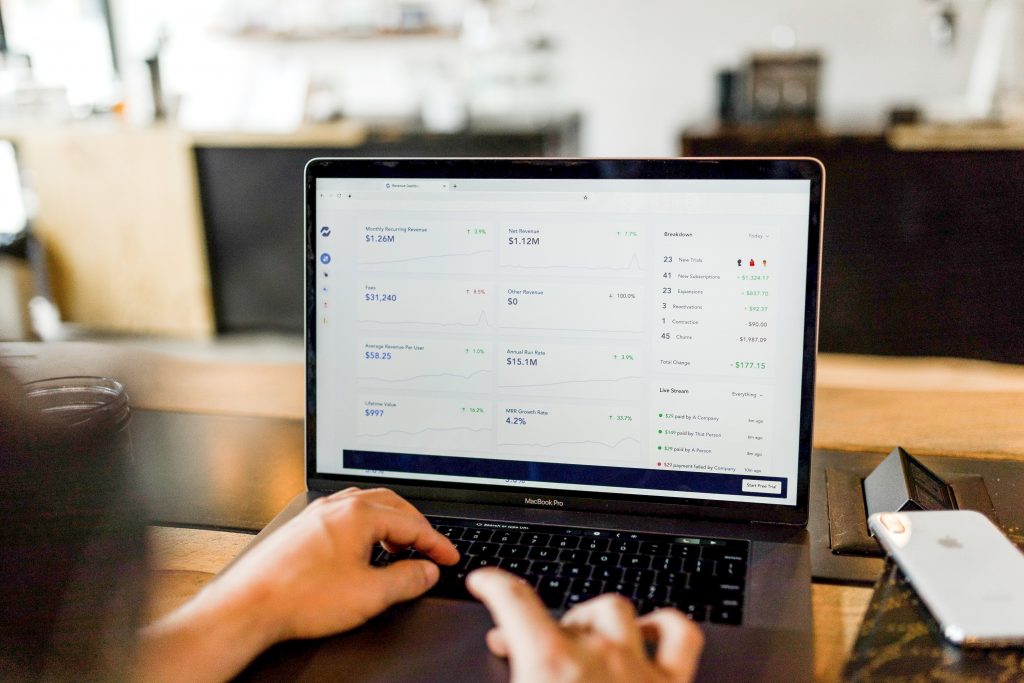What is Conversion Rate Optimization and How Can It Help Your Business?
Every smart business owner on the planet should not only understand their conversion rates – for every marketing campaign – but should also be working every day to push that rate as high as possible.
Below we run through what a conversion rate is, why it’s so important, and even outline a couple of tips to help you hit the ground running.
Let’s jump in!
Conversion Rate 101
A conversion rate is a metric that represents the rate of website visitors who complete a desired activity, like making a purchase, completing a survey, or subscribing to a newsletter. For online marketers, understanding and improving conversion rates is important because it can help to increase the efficiency of marketing campaigns and the overall profitability of a website or business.
To figure out your conversion numbers, you can break down the number of conversions (i.e., the desired actions that were completed) by the amount of website visitors, and then multiply that figure by 100 to express it as a percentage. For example, if a website receives 1,000 visitors in a given time period and 100 of them make a purchase, the conversion percentage would be 10% (100 conversions / 1,000 visitors * 100).
There are many factors that can affect a website’s conversion rate, including the quality and relevance of the content, the design and layout of the website, the pricing, and availability of products or services, and the effectiveness of the call-to-action.
Why Should Marketers Understand – and Optimize – Their Conversion Rates?
There are several reasons why marketers should track and optimize their conversion rates:
- Increased efficiency: By improving conversion rates, marketers can get more value out of their marketing efforts. For example, if a website’s conversion rate increases from 2% to 4%, the same number of visitors will result in twice as many conversions. This means that the business can either generate more revenue or acquire new customers at a lower cost.
- Improved ROI: Optimizing conversion rates can help to increase the return on investment (ROI) of marketing campaigns. By focusing on improving the elements of the website that influence conversion rates, businesses can get more value out of their marketing budget.
- Enhanced customer experience: Conversion rate optimization can help businesses to create a better experience for their customers. By understanding what motivates and discourages visitors from taking the desired action, businesses can make improvements to the website and marketing moves that will lead to a more positive experience for the user.
- Better decision-making: Tracking and analyzing conversion rates can provide valuable insights into the effectiveness of different marketing tactics and allow businesses to make more informed decisions about where to allocate their resources.
All in all, optimizing conversion rates can help businesses to get more out of their marketing efforts, improve their ROI, enhance the customer experience, and make better decisions about their marketing strategy.
Tips for Boosting Your Conversion Rate
To help you hit the ground running we’ve put together a couple of tips you can use – right now – to boost your conversion rates:
Make the most of your call-to-action (CTA): A strong and compelling call-to-action can be a powerful tool for encouraging visitors to take the desired action. Make sure that your CTA is clear, relevant, and prominently placed on the page.
Optimize your landing pages: Landing pages are an important part of the conversion process, as they are the pages where visitors are most likely to take the desired action. To optimize your landing pages, focus on making them relevant, easy to navigate, and visually appealing.
Use social proof: Social proof is the idea that people are more likely to take the desired action if they see others doing it. You can use social proof by featuring customer reviews, testimonials, and other forms of social proof on your website.
Simplify the checkout process: A long or complicated checkout process can be a major barrier to conversion. Make sure that your shopping cart process is as smooth and straightforward as possible to reduce the risk of abandonment.
Test and optimize: One of the most effective ways to improve conversion rates is to test different elements of your platform and marketing efforts to see what works best.
This can be done through A/B testing, which involves comparing two versions of a webpage or marketing campaign to see which performs better. By testing and optimizing different elements of your website and marketing efforts, you can identify what works best and make continuous improvements to your conversion rates.
Closing Thoughts
There are a number of things you can do to boost the profitability of your business, but few things move the needle the same way that increasing your conversion numbers will.
Take advantage of the tips and tricks we highlighted above. Track and optimize your efforts.
And, if you’re looking to really take things to the next level, you can find more details on GapScout!

